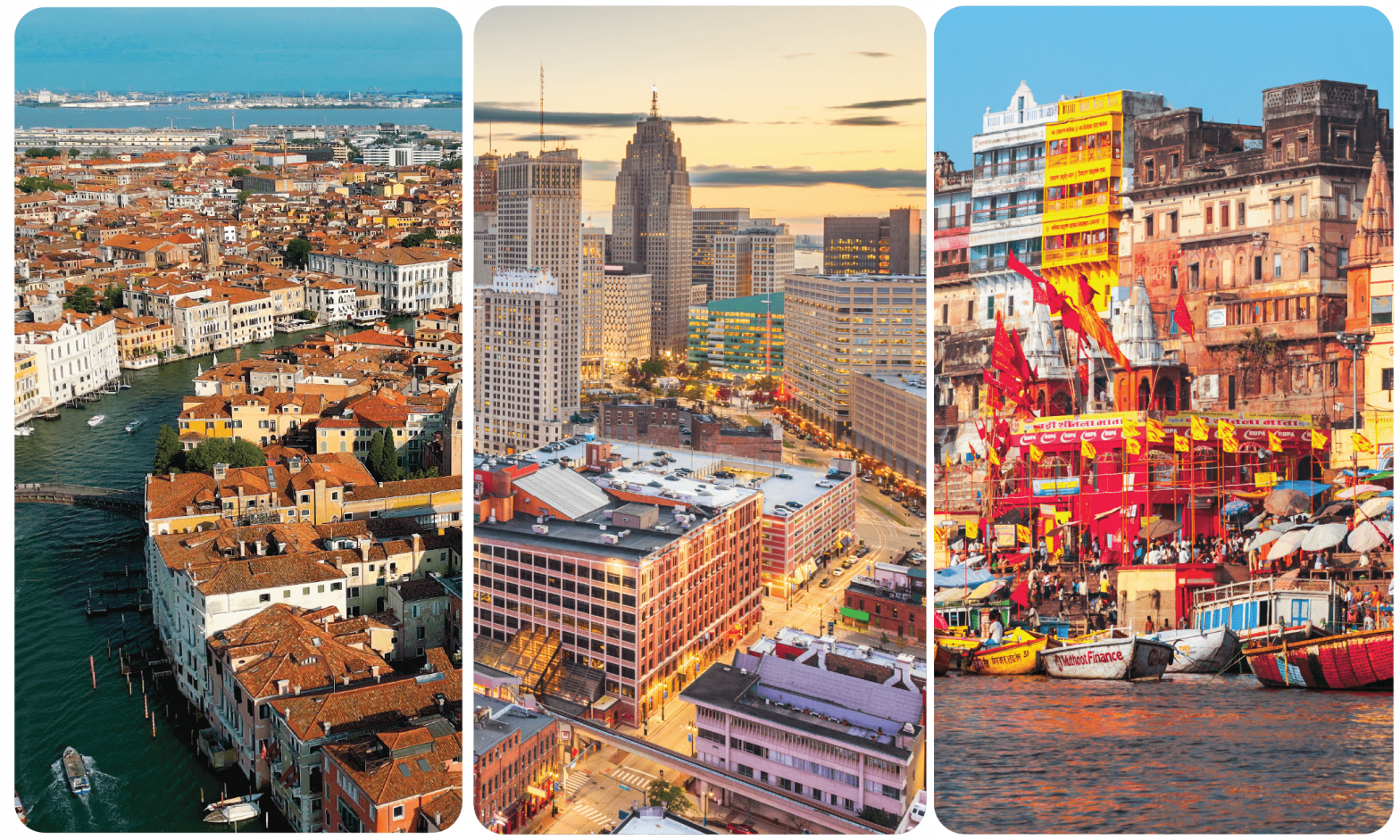On May 29, India’s Varanasi, Detroit in the US, and Venice in Italy, emerged as the three winning cities to host the global challenges in Toyota Mobility Foundation’s (TMF’s) US$ 9 million Sustainable Cities Challenge. The competition – a three-city challenge – will focus on the different areas of sustainable mobility relevant to their specific context, spanning the expansion of access to safe, affordable, and inclusive modes of transportation. All the three winning cities will focus on areas of their respective mobility barriers that could be best addressed through open innovation.
As part of this multi-city global competition, innovators from across the world with solutions ready to be tested to respond to the specific issue of each city are being invited, and the innovation that best meets the needs of a particular city, will be selected to be supported under the Sustainable Cities Challenge, wherein the Toyota Mobility Foundation’s initiative is to help cities accelerate towards sustainable mobility. In an exclusive interaction with Autocar Professional, Prasanna Ganesh, Executive Program Director, Toyota Mobility Foundation, shares more details about the competition. Excerpts below:
What are some of the key mobility challenges that Toyota Mobility Foundation sees in the winning Indian city, and how does it aim to find their solutions?
Being one of the largest religious tourist destinations in the country, Varanasi experiences huge volumes of tourists from across the globe who come to the city for pilgrimage and religious and cultural activities. This influx of people, while forming the backbone for the city’s economy, brings with it challenges such as congestion, safety, and overcrowding.
Through the Sustainable Cities Challenge, we aim to identify solutions that have elements of technology and design to improve safety and accessibility to the old city of Kashi for the tourists, residents, and vulnerable groups. As it is a challenge, we are open to any global innovator who has the creativity to solve the issues, along with the ability to practically implement such solution.
Other than the grant, how is TMF likely to help the 3 cities come up with their final challenge and help them to resolve it?
Toyota Mobility Foundation always supports the innovators and companies that are engaged to seek resolutions for mobility issues by guiding them with our problem solving, mobility expertise and business strategy advice where applicable. TMF will also be supporting the innovators to directly engage with city leaders and interact with the problem owners, end users and beneficiaries giving them the opportunity to learn, customise and scale their solutions.
As a part of the challenge process, companies will demonstrate their solutions in real life conditions in Varanasi and stress test their solutions. Additionally, companies will also have access to a network of like-minded innovators, as well as the opportunity to collaborate.
 On May 29, Venice (Italy), Detroit (USA), and Varanasi (India) emerged as the three winning cities to host innovation challenges under Toyota Mobility Foundation’s Sustainable Cities Challenge that aims to help cities accelerate towards sustainable mobility solutions.
On May 29, Venice (Italy), Detroit (USA), and Varanasi (India) emerged as the three winning cities to host innovation challenges under Toyota Mobility Foundation’s Sustainable Cities Challenge that aims to help cities accelerate towards sustainable mobility solutions.
Will innovators take inspiration from other global cities to solve Sustainability challenges?
Several cities globally employ data and technology-driven solutions to tackle overcrowding challenges. Some examples include the technologies applied to enable crowd movement in Mecca during the Hajj pilgrimage and also used to enable the people flow in the Tirupati Tirumala Temple, Ayodhya Temple and the Kashi Vishwanath temple in Varanasi itself. There are many examples that innovators can take inspiration from to develop their solutions.
What is Toyota’s sustainability vision? How is the company approaching its sustainability targets in India?
Toyota and our subsidiaries have inherited the spirit of ‘Toyoda Principles’ since our foundation and have aimed to create a prosperous society through our business activities. Under the ‘Toyota Philosophy’, we have the mission of ‘Producing Happiness for All.’ We aim to be the “best company in town” that is both loved and trusted by the people. We will contribute to the sustainable development of our society / planet by promoting sustainability, including in line with our commitment to Carbon Neutrality in 2050.
Also Read:
